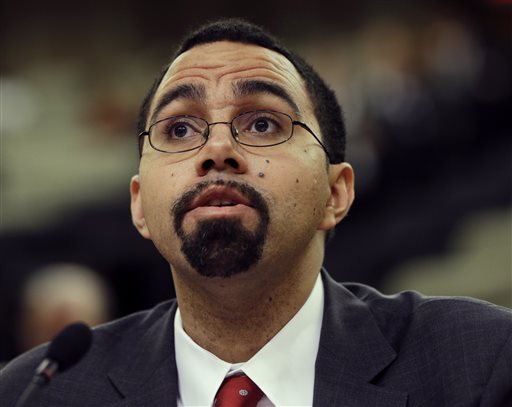New York state to reduce standardized tests as criticism grows

NY Education Forums C_Lieb.jpg
ALBANY—
Some standardized tests in New York public schools will be eliminated, state Education Commissioner John King has told superintendents in a surprising announcement that cites “a variety of pressures” that may have hurt instruction. The move comes after years of criticism from teachers, parents and other detractors, some of whom said it still fell short.
The first target will be an eighth-grade math test, which comes at the same time as a federally required standardized test in math, King wrote in a letter sent Thursday and obtained by The Associated Press.